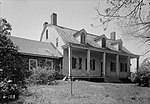The Fort Lee lane closure scandal, also known as the George Washington Bridge lane closure scandal or Bridgegate, was a political scandal involving a staff member and political appointees of New Jersey Governor Chris Christie colluding to create traffic jams in Fort Lee, New Jersey, by closing lanes at the main toll plaza for the upper level of the George Washington Bridge.The problems began on Monday, September 9, 2013, when two of three toll lanes for a local street entrance were closed during morning rush hour. Local officials, emergency services, and the public were not notified of the lane closures, which Fort Lee declared a threat to public safety. The resulting back-ups and gridlock on local streets ended only when the two lanes were reopened on Friday, September 13, 2013, by an order from Port Authority Executive Director and Democrat from New York, Patrick Foye. He said that the "hasty and ill-informed decision" could have endangered lives and violated federal and state laws.It was later suggested that the lanes had been closed intentionally to cause the massive traffic problem for political reasons, and especially theorized that they were a retributive attack against Fort Lee's Mayor Mark Sokolich, a Democrat who had not supported Christie as a candidate in the 2013 New Jersey gubernatorial election. The ensuing investigations centered on several of Christie's appointees and staff, including David Wildstein, who ordered the lanes closed, and Bill Baroni, who had told the New Jersey Assembly Transportation Committee that the closures were for a traffic study.The United States Attorney for the District of New Jersey Paul J. Fishman launched a federal investigation, resulting in a nine-count indictment against Bridget Anne Kelly, the deputy chief of staff, Baroni and Wildstein. Wildstein entered a guilty plea, and testified against Baroni and Kelly, who were found guilty on all counts in November 2016. David Samson pleaded guilty to one felony count of conspiracy in July 2016, for acts unrelated to the lane closures but unearthed by the federal Bridgegate investigation.Christie's political standing was badly damaged by the scandal, and his approval ratings from the scandal onward only continued to fall. Once considered a leading contender for the 2016 Republican nomination for President, Christie dropped out of the presidential race after a poor showing in the New Hampshire primary. The scandal was widely cited as a major factor in the early demise of Christie's 2016 presidential ambitions. Christie called Bridgegate "a factor" in why he was bypassed by Donald Trump as the vice presidential nominee. In September 2016, both the prosecution and the defense in the trial of two of Christie's former aides argued that Christie knew of his close associates' involvement in a plan to shut down lanes leading to the George Washington Bridge as it was happening, and that the closings were to punish Sokolich for declining to support Christie's reelection bid. This was the first time Christie had been officially accused of contemporaneous knowledge of the plot.The defendants in the case appealed their convictions. In June 2019, the United States Supreme Court granted certiorari and heard the case (known as Kelly v. United States) in January 2020. One defendant, Bill Baroni, having already begun serving his federal prison term, asked for immediate release. On May 7, 2020 the Supreme Court unanimously overturned the convictions, judging that the defendants could not have violated the fraud statutes they were charged under since they had not obtained "money or property".








